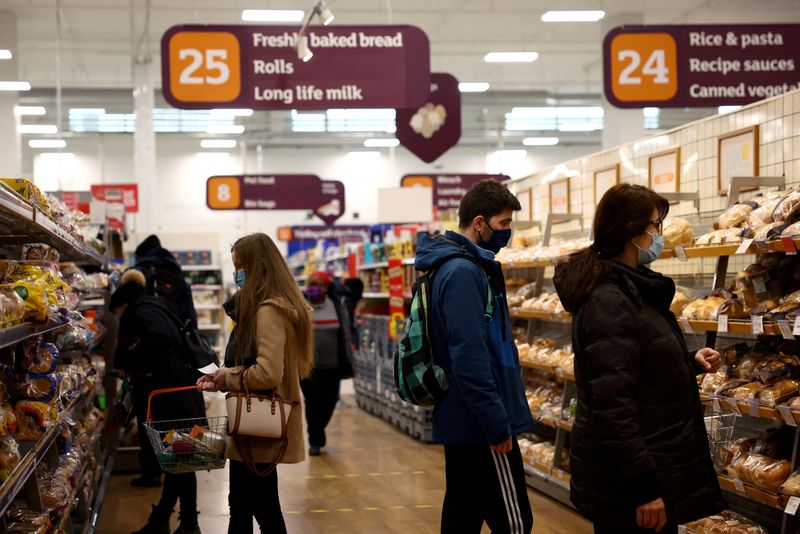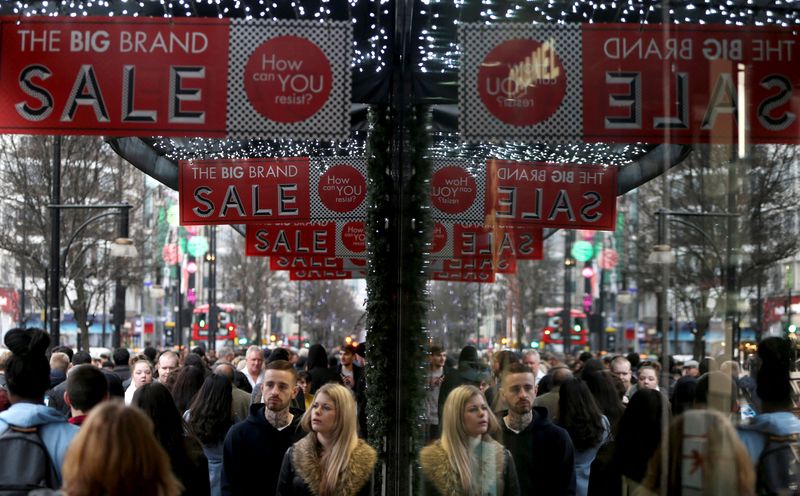LONDON (Reuters) - British consumers shunned restaurants and hotels last month as the Omicron coronavirus variant spread and they spent heavily on eating at home ahead of the Christmas holidays instead, surveys showed on Tuesday.
Payment card provider Barclaycard said stronger supermarket shopping led a 12.2% rise in consumer spending over its pre-pandemic level in December 2019.
By contrast, spending at hotels and restaurants dropped, the latter down by 14.1%.
A separate survey from the British Retail Consortium (BRC) showed retail sales values were 2.1% higher than a year earlier with food sales building on an already strong performance in December 2020.
"More Brits were either isolating or choosing to stay at home due to the new variant, which hampered face-to-face retailers as well as hospitality and leisure outlets," said Jose Carvalho, head of consumer products at Barclaycard.
"However, there were some bright spots. Spending on essential items grew strongly as shoppers filled their trolleys with food and drink and celebrated the festive period with family and friends."
The BRC ranked clothes stores as the best performing category in December. Last week fashion chain Next raised its full-year profit outlook on the back of a strong Christmas period.
While retailers fared well in 2021 overall, the BRC warned that consumer spending was likely to be squeezed by fast-rising inflation, surging energy bills and tax increases.

The Bank of England thinks consumer price inflation will hit about 6% in April, its highest in 30 years, and in the same month workers are due to see their social security contributions go up.
"It will take continued agility and resilience if (retailers) are to battle the storm ahead, while also tackling issues from labour shortages to rising transport and logistics costs," said Helen Dickinson, BRC chief executive.
